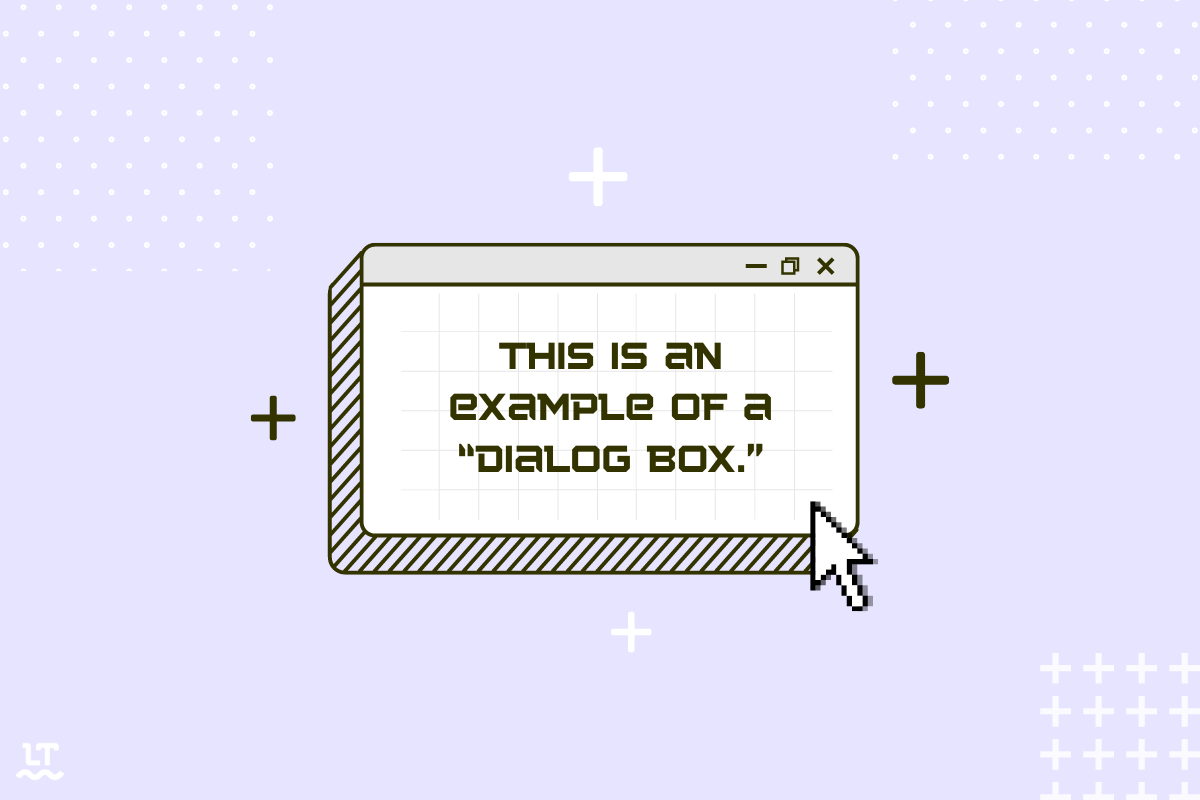What’s the Difference Between Dialogue and Dialog?
British English strongly prefers dialogue. Both spellings of the word are used in American English, depending on the style guide and meaning. Some style guides suggest using dialogue when referring to a conversation, and dialog in a computing context.
- We had trouble reading the dialogue.
- The dialog box appeared and prompted me to save the file before closing it.
What Is the Correct Spelling: Dialog or Dialogue?
If you’re here, you’re probably wondering which is the correct spelling: dialog or dialogue? The answer depends on which English dialect you’re using. British English (as well as Canadian and Australian English) strongly favors dialogue. In American English, both dialog and dialogue are commonly used, depending on what is being referred to.

Dialog vs Dialogue
In American English, dialog and dialogue can be different spelling variations of the same word. Or, they can have slightly different meanings altogether. It often depends on which style guide you’re following.
Dialogue is often used to refer to the conversation between two or more people that was written for and featured in a book, film, or play. It can also simply be a conversation between people (in real life, not in a book, film, or play).

A dialog box is a small window that appears on a screen where you can input text or select a command.


British vs American Spelling
You can find the same patterns in other words that end in “–og” or “–ogue.” British English uses “–ogue,” whereas it is common to find both variations of the word in American English.
| British English | American English |
|---|---|
| Analogue | Analogue/Analog* |
| Catalogue | Catalogue*/Catalog |
| Homologue | Homologue/Homolog* |
| Monologue | Monologue*/Monolog |
We should note that there are a few words that are almost always spelled with “–ogue”, even in American English.
A Dialog on Dialects
Remembering what is the correct or preferred spelling based on dialects can be challenging, especially if you’re writing for an international audience. Keep in mind that British English (and other dialects like Canadian, Australian, etc.) use the “–ogue” ending, whereas American English tends to use both, depending on the style guide that is being followed.
You can simplify your writing process by using LanguageTool as your writing assistant. This advanced text editor supports over 30 languages and dialects, and will notify you if you’ve used the wrong spelling of a word. Additionally, not only does LanguageTool correct grammar and punctuation errors, but it will also suggest stylistic improvements to take your writing to the next level. Intrigued? Try it below.
